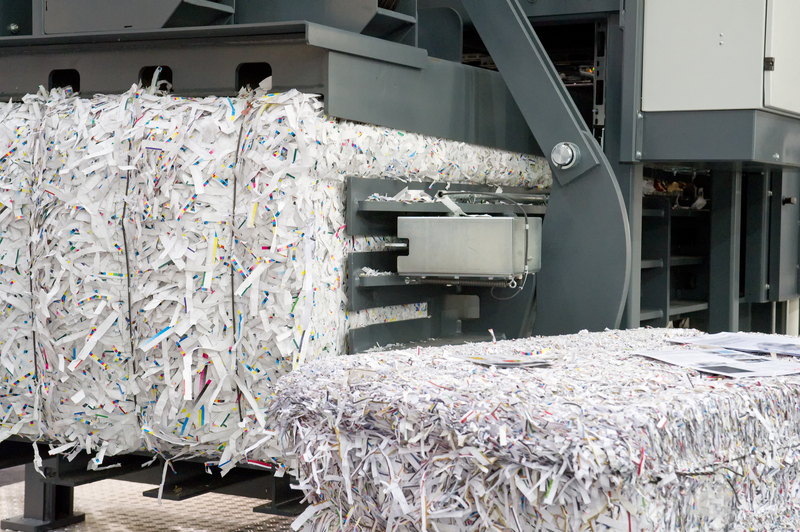Efficient Restaurant Food Waste Management
Posted on 01/03/2025
Efficient Restaurant Food Waste Management
In the restaurant industry, food waste is a significant concern with far-reaching implications for both the environment and business profitability. According to a study by the Food and Agriculture Organization (FAO) of the United Nations, approximately one-third of food produced globally for human consumption is lost or wasted. Efficient restaurant food waste management is crucial for sustainability, cost reduction, and corporate responsibility. This article aims to explore various strategies and methods that can help restaurants minimize food waste effectively.
Understanding Food Waste in Restaurants
Before diving into solutions, it is vital to understand what constitutes food waste in a restaurant setting. Food waste can be categorized into several types, including:
- Pre-consumer Waste: This includes waste generated during food preparation, such as vegetable peels, trimmings, and spoiled ingredients.
- Post-consumer Waste: This consists of leftovers on customers' plates that are thrown away after the meal.
- Spoilage: This occurs when food items go bad before they are used, often due to poor storage and inventory management.
- Overproduction: Preparing more food than is needed, leading to excess that eventually goes to waste.

Strategies for Efficient Food Waste Reduction
Effective food waste management involves both preventative and corrective measures to minimize waste at various stages of the food preparation and consumption cycle. Here are some practical strategies:
1. Inventory Management
An efficient inventory management system can significantly reduce food waste. By keeping track of the stock levels and understanding the shelf life of ingredients, restaurants can make informed purchasing decisions. Implementing a first-in, first-out (FIFO) policy ensures that older items are used before newer ones, thereby reducing spoilage.
2. Menu Design
A well-thought-out menu can play a critical role in minimizing food waste. Designing a menu that incorporates similar ingredients in multiple dishes can reduce the chances of ingredients going unused. Seasonal menus can also help utilize fresh, local produce, reducing both cost and waste.
3. Portion Control
Portion sizes should reflect customer demand to minimize post-consumer waste. Restaurants can offer different portion sizes, allowing customers to choose based on their hunger levels. Additionally, staff training on accurate portion sizes can prevent both overproduction and excessive leftovers.
4. Waste Audits
Conducting regular waste audits can provide insights into where and why food waste occurs. By analyzing these data, restaurants can identify problem areas and implement targeted solutions. Waste audits can also help measure the effectiveness of waste reduction strategies over time.
Technological Solutions for Food Waste Management
Technological advancements offer innovative ways to tackle food waste in the restaurant industry. Here are some tech-based solutions:
1. Smart Inventory Systems
Modern inventory management software can track stock levels in real-time, alerting staff when items are nearing their expiration dates. Such systems can also predict future inventory needs based on historical data, reducing overstocking and spoilage.
2. Waste Tracking Applications
Several applications are designed to help restaurants track and analyze their food waste. These apps can categorically log waste, providing valuable data for making informed decisions on reducing waste.
3. Digital Menu Boards
Digital menu boards can be quickly updated to reflect inventory levels, promoting the sale of items that are nearing their sell-by date. This can help reduce waste while ensuring customers get fresh food.
Sustainable Practices to Reduce Food Waste
Incorporating sustainable practices not only helps reduce food waste but also enhances a restaurant's reputation as a socially responsible business. Here are some sustainable practices restaurants can adopt:
1. Composting
Composting organic waste like vegetable peels and food scraps can significantly reduce the amount of waste sent to landfills. Many cities offer commercial composting services, making it easier for restaurants to implement this practice.
2. Food Donations
Non-profit organizations and food banks often accept surplus food. By donating extra prepared food, restaurants can contribute to the community while reducing waste. Laws like the Good Samaritan Food Donation Act protect businesses from liability when donating food in good faith.
3. Employee Training
Training staff on sustainable practices and the importance of reducing food waste is crucial. Employees should be educated on proper storage, portion control, and waste sorting to ensure the efficient implementation of waste management strategies.
4. Customer Engagement
Engaging customers in waste reduction efforts can also be beneficial. Restaurants can offer incentives for customers who bring their own containers for takeout or encourage them to take leftovers home, reducing post-consumer waste.

Economic Benefits of Reducing Food Waste
Efficient food waste management not only benefits the environment but also offers significant economic advantages. Here's how:
1. Cost Savings
Reducing food waste translates directly into cost savings. By minimizing waste, restaurants can lower their purchasing costs and reduce disposal fees. An efficient waste management system also ensures that more of the food purchased actually reaches the customer, maximizing revenue.
2. Enhanced Reputation
Consumers are increasingly conscious of environmental issues and prefer to support businesses that practice sustainability. A restaurant known for its efficient waste management can attract environmentally aware customers, thereby enhancing its reputation and potentially increasing patronage.
3. Compliance and Incentives
Governments and local authorities are progressively implementing stricter regulations around waste disposal. Efficient waste management can help restaurants comply with these regulations, avoiding potential fines. Additionally, some regions offer tax incentives or grants for businesses that implement sustainable practices.
Conclusion
Efficient restaurant food waste management is essential for sustainability, cost reduction, and improved public image. By implementing effective strategies such as better inventory management, thoughtful menu design, and sustainable practices, restaurants can significantly reduce their food waste. Leveraging technological solutions and engaging both employees and customers in waste reduction efforts can further enhance these efforts. Ultimately, efficient food waste management is a win-win for the environment, the community, and the business's bottom line.

